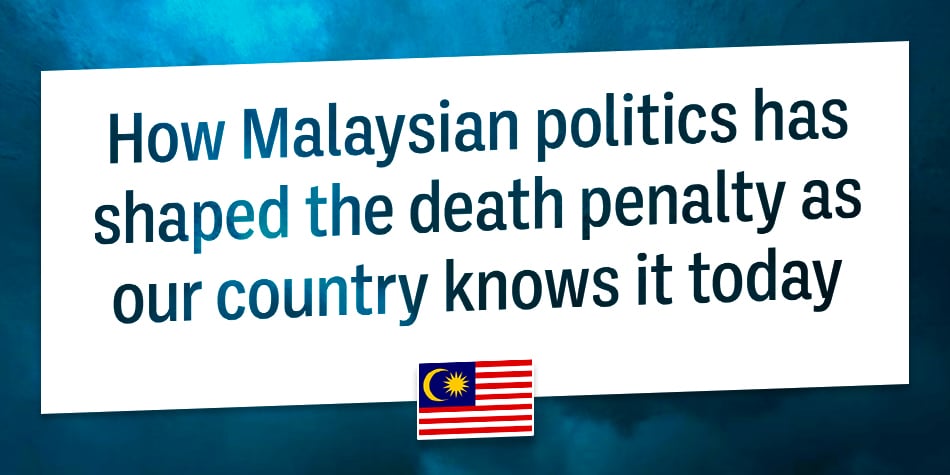
Abolition of the death penalty at the United Nations Human Rights Council 53rd session
International standards
The United Nations Human Rights Council met for its 53rd Regular Session from June 19 to July 14, 2023. If you missed it, here is what happened regarding the abolition of the death penalty!
During the debates
During the Presentation of the Secretary-General’s report on the situation of human rights in the Islamic Republic of Iran on June 21, Nada Al- Nashif, UN Deputy High Commissioner for Human Rights, highlighted the concerning rise in the number of death penalty sentences and executions during the reporting period. She noted with regret that at least three children were executed during 2022, and that minorities were disproportionately represented amongst those executed. She also mentioned the alleged use of torture to obtain confessions which lead to death sentences. Watch the statement here.
Opening the interactive dialogue on the situation of human rights in Belarus, Special Rapporteur Anais Marin mentioned the deeply concerning expansion of capital punishment to crimes of high treason, as well as the use of charges of planning terrorist attack, an offence now punishable by death, to silence anti-war protesters. Watch it here.
During the Oral update by Sara Hossain, Chairperson of the Independent International Fact-Finding Mission on the Islamic Republic of Iran, she noted that at least 26 people have reportedly been sentenced to death in Iran in connection with the protests and that “dozens more have been charged with or face offences carrying the death penalty.” She called onto the Iranian authorities to stop the executions of individuals convicted and sentenced to death in connection with the protests, and to respect the right to peaceful assembly. Watch the intervention here.
CIVIL SOCIETY ORAL STATEMENTS ON THE DEATH PENALTY
On the occasion of this 53rd session, several members of the World Coalition against the Death Penalty presented oral statements on the death penalty.
During the adoption of the Universal Periodic Review Outcome of Ghana, the Advocates for Human Rights, along with the FIACAT and ACAT Ghana, delivered a joint oral statement welcoming Ghana’s acceptance of all the recommendations to abolish the death penalty and ratify the Second Optional Protocol to the ICCPR (OP2-ICCPR). They also included a poem from the “death penalty corner,” and urged Ghana to implement these recommendations by expediting the adoption of legislation to abolish the death penalty and by commuting current death sentences. Amnesty International also intervened and urged the government of Ghana to commute death sentences to prison terms and establish an official moratorium on executions. Watch both statements here.
During the adoption of the Universal Periodic Review Outcome of Pakistan, the FIDH co-delivered a statement with the Human Rights Commission of Pakistan, expressing their disappointment at the government’s refusal to accept all but one recommendation related to the death penalty, including on the establishment of an official moratorium and the ratification of the OP2-ICCPR. Watch the statement here.
The Advocates for Human Rights and Prisoners’ Future Foundation co-delivered an oral statement during the adoption of the Universal Periodic Review Outcome of Zambia, welcoming Zambia’s abolition of the death penalty in the Penal Code in December 2022, its acceptance of all UPR recommendations related to the death penalty. They urged Zambian authorities to commute the sentences of the people who are still under sentence of death, abolish the death penalty for all crimes and ratify the OP2-ICCPR. Amnesty International also delivered a statement to welcome Zambia’s support of the recommendations to ratify the OP2-ICCPR. Watch both statements here.
Multiple oral statements were made during the adoption of the Universal Periodic Review Outcome of Japan. The Advocates for Human Rights, the World Coalition Against the Death Penalty, the Center for Prisoners’ Rights (Japan), Japan Innocence and Death Penalty Information Center voiced their concerns regarding Japan’s ongoing use of the death penalty and said they are disappointed that Japan noted all 32 recommendations which it received on the death penalty. They called onto Japan to engage in a public dialogue on the application of the death penalty, mandate appeal in death penalty cases, ensure the presence of defense counsel at all interrogations, eliminate solitary confinement, and otherwise improve administration of justice and detention conditions for people on death row.
Amnesty International also intervened to mention they regret that Japan noted all 17 recommendations aimed at abolishing the death penalty in Japan. The urged Japan to implement reverse its position and implement an immediate moratorium on executions as a first step towards full abolition of the death penalty.
The FIDH and the Center for Prisoners’ Rights intervened to highlight their disappointment at the Japanese government’s latest blanket refusal to accept recommendations related to the death penalty and detention conditions, and denounced Japan’s ongoing failure to make progress towards the abolition of capital punishment as a “stain on its human rights record.” Watch all three statements here.
RESOLUTIONS ADOPTED
The Human Rights Council adopted 30 resolutions, including one on drug policies and human rights, and 13 decisions.
SIDE EVENTS
Multiple side events were organized by members of the World Coalition Against the Death Penalty.
A side event was organized on June 22 by Gulf Centre for Human Rights about the situation of human rights in Saudi Arabia.
Human Rights & Democratic Participation Center “SHAMS” hosted a side event about the situation of human rights in the Occupied Palestinian Territory and Israel.
The 54th regular session of the Human Rights Council is scheduled to take place in Geneva from September 11 to October 6, 2023.
Categories
Trend Towards Abolition






